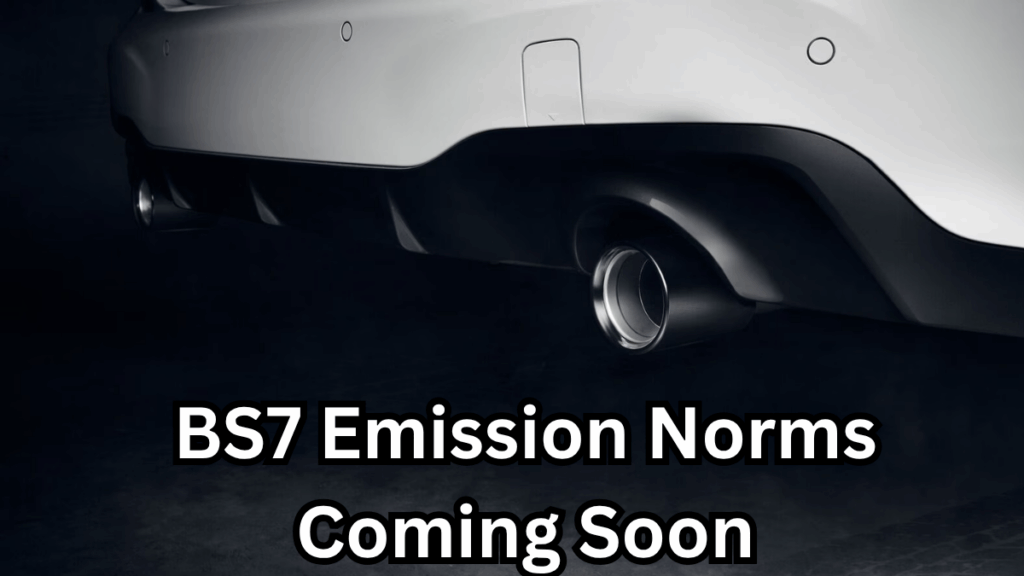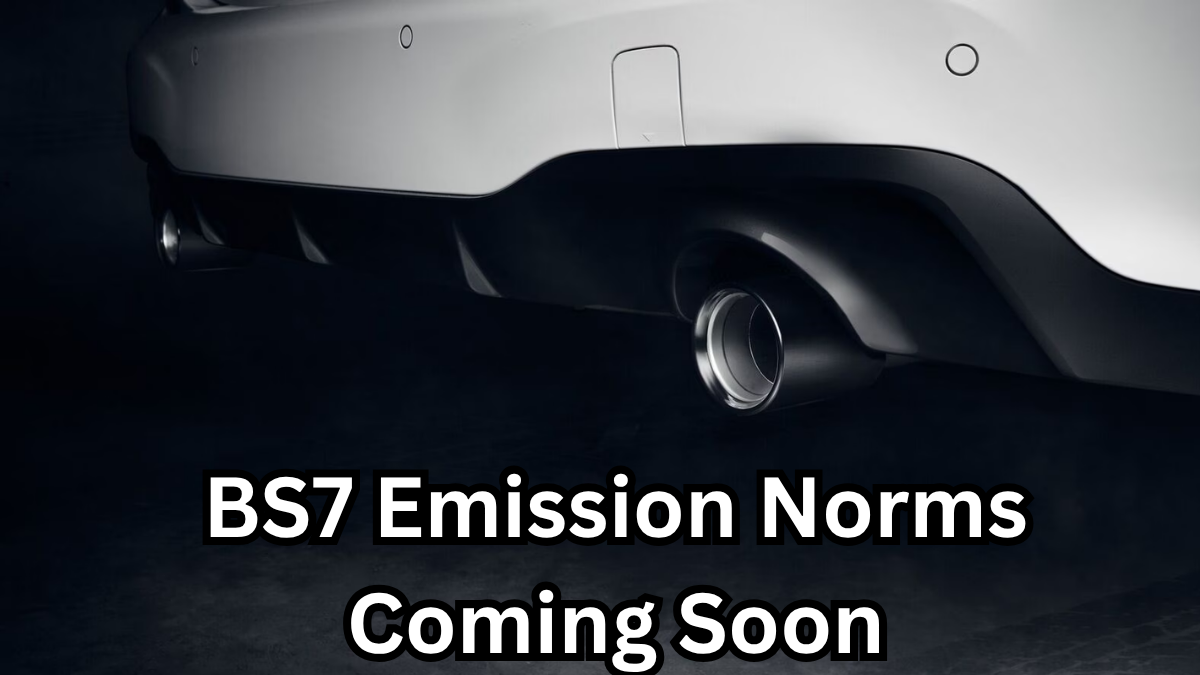The Indian automobile sector is preparing for another milestone. After implementing BS6 and BS6 Phase 2, the government is moving toward the introduction of the BS7 emission norms India, expected by 2027. But what exactly are these norms, and how will they affect Indian car buyers?

What Are BS7 Emission Norms?
BS7, or Bharat Stage 7, is the next generation of India’s vehicle emission standards. Designed to reduce air pollution, these norms will introduce stricter limits on harmful gases and push the auto industry toward cleaner technologies.
Key Features of BS7:
-
More stringent limits on Nitrogen Oxide (NOx) and particulate matter (PM).
-
Mandatory adoption of Onboard Diagnostic Systems (OBD 3) for real-time emission tracking.
-
Boost to electric and hybrid vehicles in the market.
-
Proposed rollout: April 2027.
Why BS7 Matters for the Environment and Public Health
With growing concerns over climate change and public health, India’s introduction of pollution norm BS7 is a proactive step. The objective is to:
-
Decrease the amount of harmful vehicle emissions.
-
Encourage greener technologies in the automobile sector.
-
Improve the air quality in urban centers where vehicular pollution is highest.
As the deadline for car emission 2027 approaches, the auto industry will face mounting pressure to comply, while consumers will see a shift in available car options.
BS6 vs. BS7: What’s Changing?
Here is a comparison highlighting the evolution from BS6 to BS7:
| Feature | BS6 Norms | BS7 Norms (Expected) |
|---|---|---|
| Emission Standards | Moderate NOx and PM limits | Tighter NOx and PM thresholds |
| Diagnostic System | OBD 2 | OBD 3 with advanced real-time tracking |
| Real Driving Emission Test | Limited implementation | Expanded and stricter enforcement |
| Focus on Alternative Fuels | Encouraged | Stronger push toward EVs and hybrids |
| Launch Year | 2020–2023 (BS6 and BS6 Phase 2) | Likely by 2027 |
Impact on Car Buyers
With the introduction of BS7 emission norms India, car buyers should prepare for several changes in the market.
What You Can Expect:
-
Price hikes: Advanced emission control systems will increase vehicle production costs.
-
Better mileage: More refined engines could improve fuel efficiency.
-
Greater EV availability: Automakers will offer more hybrid and electric vehicle options.
-
Lower resale for older cars: Vehicles compliant with BS4 or early BS6 may depreciate faster.
What Should Car Buyers Do Now?
If you’re planning to buy a vehicle before the car emission 2027 changes take effect, here are a few suggestions:
-
Choose BS6 Phase 2-compliant cars for future compatibility.
-
Explore electric or hybrid vehicles if you’re environmentally conscious.
-
Think resale: BS7-compliant vehicles will likely retain better market value.
-
Stay informed: Follow auto industry news and government announcements for updates.
Frequently Asked Questions (FAQs)
1. What is the expected timeline for BS7 implementation in India?
The BS7 emission norms India are anticipated to take effect by April 2027, though exact dates may vary based on industry readiness and policy rollout.
2. Will BS7 norms affect the resale value of older vehicles?
Yes. As pollution norm BS7 becomes standard, older vehicles that don’t meet the new standards could see a drop in resale value.
3. How will BS7 affect car prices?
Vehicles complying with BS7 norms will require advanced emission control systems and sensors, which will likely raise the cost of manufacturing—and subsequently, the price for buyers.
4. Should I wait for BS7-compliant cars before making a purchase?
If your priority is long-term ownership and lower environmental impact, waiting might be wise. However, BS6 Phase 2 vehicles are already quite efficient and compliant with current standards, making them a smart buy in the near term.
Final Thoughts
The move toward BS7 emission norms India is a vital step for both the environment and the automotive sector. While it may result in higher vehicle costs, it also promises cleaner air, better technologies, and a shift toward sustainable mobility. As the car emission 2027 deadline approaches, both car buyers and manufacturers should prepare for a cleaner and more regulated future.
Click here to learn more
